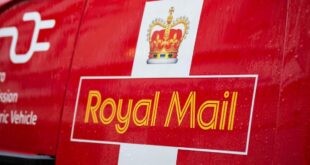As Britain stumbles towards Brexit, the biggest opportunity that will emerge is hardly ever mentioned – the environment, writes John Mann MP.
One of the arguments used against Brexit is that engineered parts of vehicles cross the Channel dozens of times during production.
Change is painful, but does anyone believe this is the way to configure British manufacturing into the future?
Despite the developments in technology , of which 3D printing is only one, engineering parts are becoming a new world already.
The days of shipping physical pieces across the world are numbered as technology design becomes the commodity and materials become more flexible.
Firms will need to purchase the required minerals, but the market for these is in Africa and Asia.
The manufacturers that survive the next 29 years will be the ones that are fleet of foot in adapting to change and where the innovators in universities are fully funded.
The old-style structures of the EU are no benefit to this as the EU is neither nimble nor flexible .
There is no guarantee that the UK will be, but it is now free to develop its own green revolution.
It already produces one third of the world’s off-shore wind energy.
A country that becomes self-sufficient in energy is greener and much safer.
READ THIS: MP says Britain needs a green industrial revolution.
Relying on others for your energy is a recipe for future disaster.
On food, Britain has the chance to reject the one-size-fits-all model sweeping the world, where every apple tastes the same, but only if it protects local producers in widening choice.
If we all returned to seasonal products, it would be a good thing.
Much from the past needs keeping as a memory, but encouraging English milk bottles home delivered by electric vehicles is a tradition that needs re-creating.
A bit like the Royal Mail, new ways of doing things are not in themselves better for us.
Moving away from plastic mill cartels to a regeneration of the doorstep pint is good for the environment and good for Britain.
Source link

